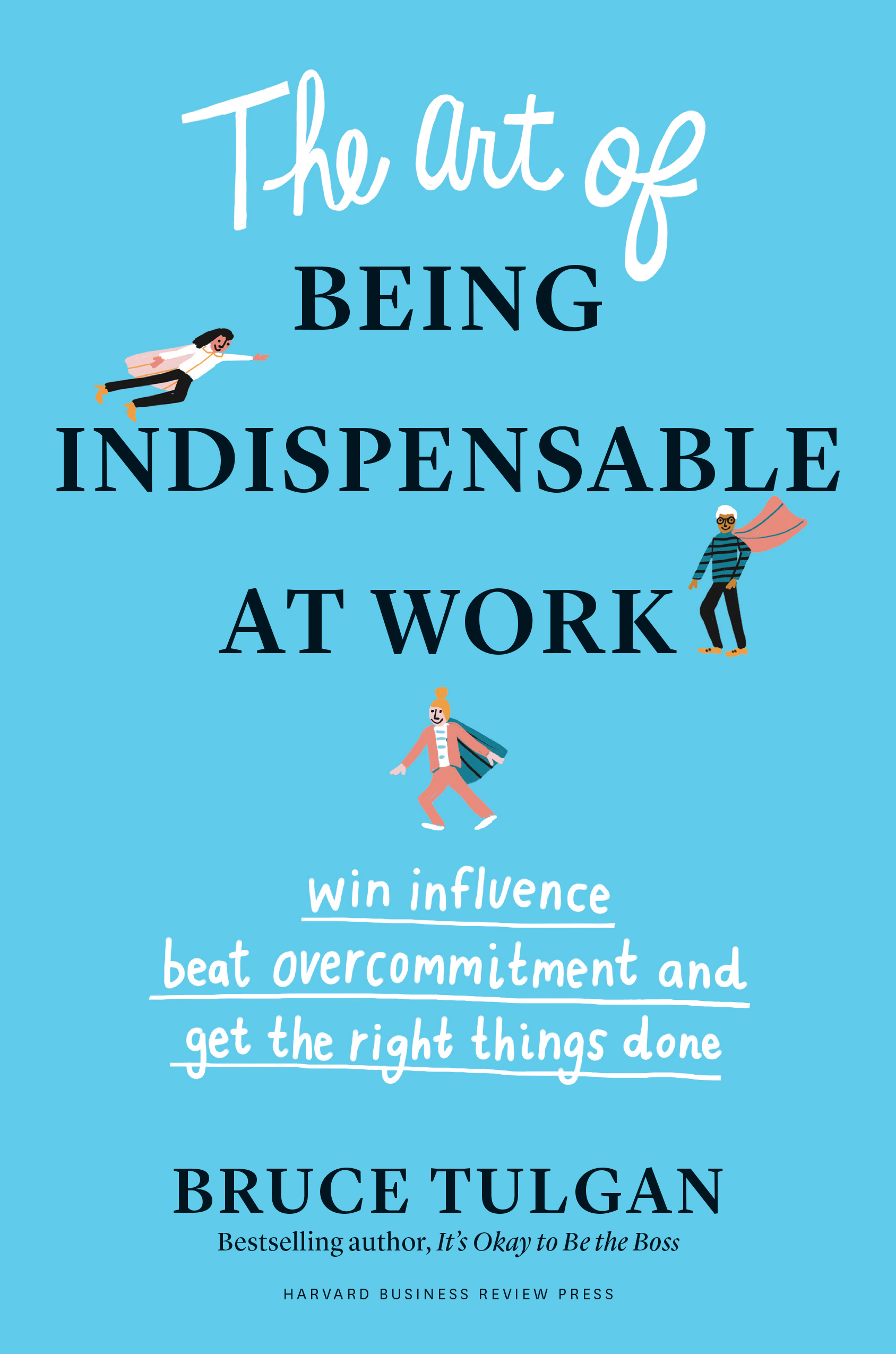 Bruce Tulgan’s new book, The Art of Being Indispensable at Work, offers solutions, advising leaders on how to influence others, how to say yes and no, and ultimately how to get things done in complex work environments. Tulgan is a bestselling author of Not Everyone Gets a Trophy, a highly in-demand advisor to global business leaders, the Founder of advisory firm Rainmaker Thinking, and a lecturer at the Yale Graduate School of Management. The NCMM chatted with him recently about his new book and its lessons for middle market leaders.
Bruce Tulgan’s new book, The Art of Being Indispensable at Work, offers solutions, advising leaders on how to influence others, how to say yes and no, and ultimately how to get things done in complex work environments. Tulgan is a bestselling author of Not Everyone Gets a Trophy, a highly in-demand advisor to global business leaders, the Founder of advisory firm Rainmaker Thinking, and a lecturer at the Yale Graduate School of Management. The NCMM chatted with him recently about his new book and its lessons for middle market leaders.
Has the pandemic and so many middle market company employees working from home changed “The Art of Being Indispensable”?
Tulgan: Well, I didn’t specifically write the book for the post-pandemic era. But I might as well have because what the book is really about is the long game: building a reputation for delivering on your promises, managing yourself in an environment where so much is out of your control, and managing both your work and working relationships at a time when jobs are becoming more demanding.
Much of the book is about working effectively across departmental and/or functional silos. Why is that so important for middle market leaders, and what are the challenges?
Tulgan: Right now, middle market companies, like all businesses, are in survival mode because of the pandemic. But even before the pandemic, organizations were trying to get people to collaborate more and were pushing authority down the chain of command. They're trying to get everybody to treat everyone as their customer, but what that means is that everyone's inundated with requests from all their colleagues, some they don’t even know. You're relying on colleagues whom you can't necessarily hold accountable.
Our research shows that the people who are the most successful at navigating relationships outside of clear lines of authority are people who win the confidence of their colleagues: they're the people others want to work with, people who have a reputation for being aligned with the chain of command, who communicate clearly and professionally, who do what they say, and deliver good work.
What is “real influence” versus having everybody like you because you just say yes?
Tulgan: Yes is where all the action is. Yes is where you either deliver for someone or else you make promises you can't or don't keep. You want to please people of course, but the worst thing you can do for your reputation is make promises you can't keep. “Real influence” lives in the brain of other people, their perception of you and your reputation. Real influence is therefore a longer game. It's when you approach every relationship by adding value, which grows your influence.
What's the right approach for middle market leaders when deciding whether to say yes or no?
Tulgan: If you answer yes, you must be sure there's a chance you can add value. A good yes is a chance to build a collaboration, where you’re going to add value. But don't waste your “yes,” because they're so valuable. The long game of saying no is you want to be someone who has a reputation for being aligned with your chain of command, somebody who has good judgment, somebody who says no when no is the right answer.
When it comes to the technique of saying yes or no, the key is to tune into the person's ask. Help them fine tune their ask by really paying attention, asking questions, and trying to understand. That's a way of respecting somebody and showing respect for their ask.
One of the dangers of saying yes is getting involved in too many projects and then task shifting from one to another. Why is that such a bad idea?
Tulgan: Because if you're always juggling, you're probably going to drop the ball. You want to be really careful about not dropping the ball. That doesn't mean you don't want to take on more projects and have a long list of things to do. It means you have to look at your schedule every day and find the gaps in your schedule and then look at your to-do list and find the chunks of work you can actually do within those gaps. You're looking for bigger gaps in your schedule and smaller chunks of work that you can execute in.
A lot of people think they're getting more done because they're task shifting. Usually they're getting less done because task shifting means you have to take your attention out of what you were doing and then focus attention on something new. It's just not productive, and energy gets wasted in the shifting.
Why is avoiding the blame game, pointing fingers, etc., and instead expressing gratitude so important for middle market leaders seeking to influence others?
Tulgan: Everybody makes mistakes and things will go wrong. Most projects don't go perfectly. You can always find someone to blame, but it's just not a good way to build relationships. It's also not a good way to build your reputation or to ensure things will go better next time. What you want to do instead is make “thank you” one of your signatures. The best thing you can do for your attitude is think about all the things you're grateful for and all the people to whom you're grateful. That will impact your attitude, how you behave, and how you treat people. You want to reinforce the behaviors you want repeated in others, and showing gratitude is a very good way to do that.

What else would you like to tell middle market company leaders about The Art of Being Indispensable?
Tulgan: You've got to be great at your job if you're going to be indispensable, and have a great attitude and work hard. But those are just table stakes. The way to set yourself apart is to approach every relationship in terms of what you have to offer others, in terms of the value you bring to the table. Play the long game of influence by making yourself valuable. That doesn't mean saying yes to everyone and everything. It means saying no when no is the right answer—and when you say yes, say yes with a plan.